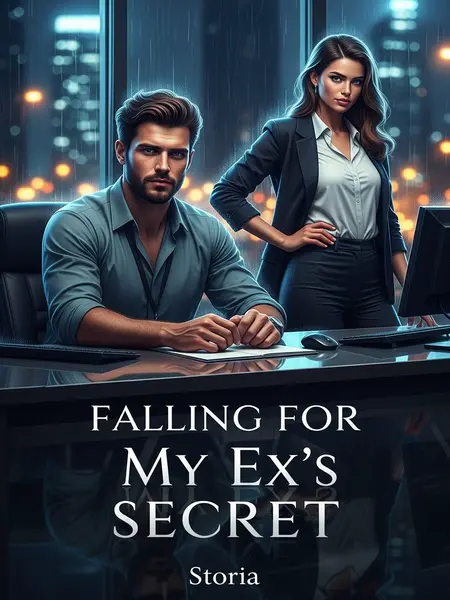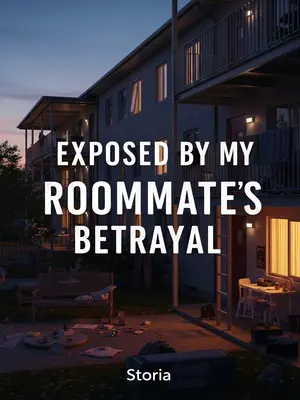Chapter 4: Ghosts of Academia
"I’m Marcus Lin, from the line, ‘Tell the sparrows not to peck at each other, there are clouds and sky ten thousand miles high.’"
The first time I met Dr. Lin, his poetic self-intro left a mark. It was at a welcome dinner in the campus basement—half the grad students barely awake, but Marcus spoke like he was headlining at Carnegie Hall.
At the end of his story, he really did give it his all and flew away.
Before the curtain fell on his life, Dr. Lin was always gentle and determined. He made every room feel safer, just by being there.
We met as undergrads and ended up at the same university for both undergrad and direct PhD—eight years together.
He studied chemistry. Our majors were different, but he always had my back.
When the flu swept through campus, I caught a fever alone in my dorm. He carried me to the health center and stayed up with me all night. The nurse handed me a cup of flat Sprite, and Marcus queued up The Office on his cracked iPhone. He joked about sneaking in Gatorade, and we watched until dawn.
It was the fall semester of my second year when Dr. Lin’s dad got sick—his only family. After that, he was either in the lab or at the hospital. I saw him less in the cafeteria, more in late-night texts.
I don’t know how many times he struggled with the idea of borrowing money before he finally asked me.
When he did, his eyes were full of embarrassment. My hands shook as I handed him the envelope—part guilt, part relief, all tangled up.
I tried to keep it casual. "Back in undergrad, I made easy money tutoring for the math olympiad. Don’t be shy, Marcus—it was like the wind blew it in."
Truth was, I asked my mom for $5,000, explained, and scraped together $15,000 to give him. I’d made a lot before, but never saved much. I told him it was all mine, so he wouldn’t feel pressure to pay my family back, too.
But things didn’t go as hoped. Dr. Lin didn’t graduate in his third year, and at the end of last year, he lost his last family member.
My second-to-last meeting with him was when he came to repay the money, even with interest. I took it, and when I didn’t protest, he seemed to relax. "You have one month left to graduate. That’s great."
I thought we’d helped each other save face, but it turned out to be a farewell. The envelope felt heavier than it should have.
I knew his PhD wasn’t going well, but it wasn’t until I read his 176-page complaint letter that I realized how much he’d suffered.
It was a rare cool summer day. Last night’s rain had cleaned the air, and the AC rattled in the ceiling. The city felt washed new.
He was already in his fourth year, and after his advisor’s last "heart-to-heart," he was told to stay another year.
His lab junior messaged me:
"Caleb, Dr. Lin took a knife to the boss’s office, cut himself, and now ran to the roof. I couldn’t stop him. I’m scared. You’re close to him—please talk him down."
I happened to be in the cafeteria next to their building. I ran, heart pounding louder than the city traffic below, sneakers slipping on the gravel as I sprinted for the elevator.
When I got to the roof, Dr. Lin was sitting on the edge, blood on his arm. His lab juniors hovered, but no one dared move. The city sprawled behind him—glass, brick, sky—he looked so small against it all.
I trembled. "Marcus, please don’t move. If you have complaints, we can report it—to the department, to the university. Everything will be fine after graduation. Maybe not graduating isn’t as bad as you think."
Dr. Lin looked at his watch, blood trickling down his arm, but his voice was gentle:
"Caleb, we’re different. Dr. Peterson treats me like a slave. I begged him to let me graduate, told him my dad was sick, I needed to work."
"He agreed, but when graduation came, he said the lab needed me, wanted me to stay another year, gave me $1200 a month to do research."
He gave a hollow laugh. "$1200—not even enough for his son’s shoes."
"I already found a job, but he won’t let me go."
"I don’t get it, why can’t he let me graduate? Four years of PhD, I wrote his papers, then his useless son’s, and only after they picked through everything could I publish my own."
"His son’s CV for foreign labs was all written by me. Even when their AC remote needed new batteries, they asked me."
"You’re a math student. If you can’t keep up, you can switch to computer science or finance, all with bright futures."
"I have no way out. If a direct PhD can’t graduate, I can’t even get a master’s. What can a 28-year-old chemistry undergrad do? Become a security guard?"
He looked at me, eyes hollow. For the first time, I wondered if survival was its own kind of math problem—one I might never solve.













